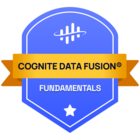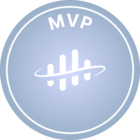Hi everyone, I am wondering if someone can help explain the difference between Node/Edge and View/Connection Properties. I am extremely confused on these concpts as I read through the CDF data modelling tutorial.
My current perspective is that Node/Edge and the knowledge graph defined by Nodes and Edges is the most “vanilla” version. Where as a Data Model made up of Views and Connection Properties is a similar construct but based on a specific perspective. The analogy between a View and Node in a relational DB sense will be a table and a view.
Is my understanding correct? If so, I am wondering what is the actual need of Node/Edge given there is already Containers that perform the data storage like a SQL table would do? It seems to me that View, Connection Properties and Data Models are sufficient enough to produce any type of sementic model?


 Check the
documentation
Check the
documentation Ask the
Community
Ask the
Community Take a look
at
Academy
Take a look
at
Academy Cognite
Status
Page
Cognite
Status
Page Contact
Cognite Support
Contact
Cognite Support





